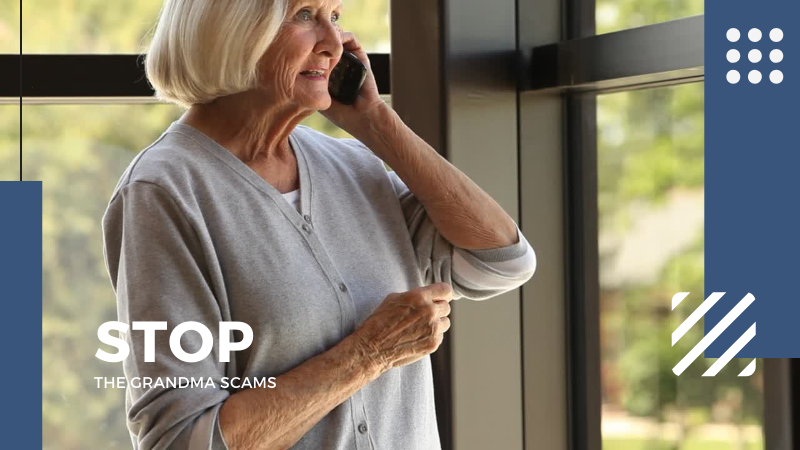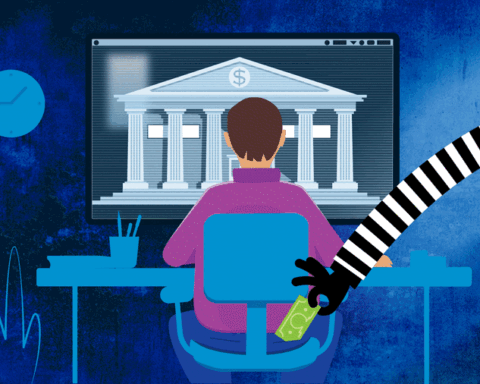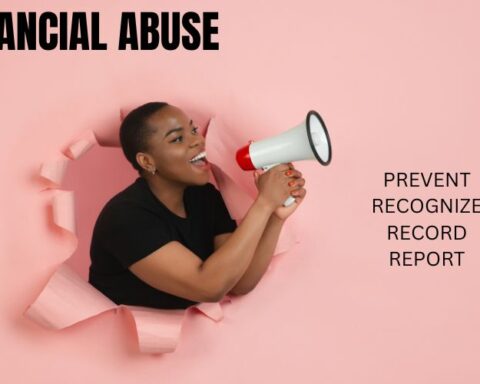Original Post | May 15, 2019 Lynne Snierson
Prevent financial elder abuse so you no longer have to hear, “have you heard about the latest grandma scam?”
The honest answer is, “Which one?” There are so many con jobs to trick vulnerable seniors into handing over their life savings that it’s hard to keep current.
Financial exploitation is but one of the different types of elder abuse, with physical, verbal, emotional and sexual abuse, and neglect and self-neglect as the others, and the effects are devastating and often irreparable. Watchdog groups to prevent elder financial abuse find there are more than 5 million victims being taken for more than $3 billion each year in the United States through financial abuse alone, and the numbers for all types of abuse cases are climbing even though the widespread problem remains seriously underreported.
New Hampshire is no exception.
“This is a vulnerable population. The victims cut across all socioeconomic and educational levels. Elder abuse of all types can affect anyone and come from anywhere,” says Rachel Lakin, the adult protective services administrator for the New Hampshire Department of Health and Human Services. She adds that in state fiscal year 2018 the agency received 3,156 reports to be investigated because they met the criteria and, of those, 2,456 were for people over the age of 60. “We’re the second-oldest state in the country, and as the population continues to rapidly age, this problem is only going to get bigger.”
The standardized definition of elder abuse is to knowingly commit an intentional or negligent act that causes harm or serious risk of harm to a vulnerable adult. Those working in the banking industry are all too familiar with the fallout.
“We see all the scams. The romance scam, the Publishers Clearing House scam where they think they’ve won a million dollars or are getting a Mercedes, the sheriff called and is coming to arrest me if I don’t send money to pay back taxes scam. The my grandchild is in trouble scam. All of them,” says Susan Bonenfant, the compliance officer for the Salem Cooperative Bank and its branch across the border in Massachusetts.
Generally, the scammers tell them to take out the cash from the bank and go to a store and get a money card and then call them with the numbers on the back.
Susan Bonenfant, Compliance Officer, Salem Cooperative Bank
Federal banking regulations require that suspicious activity involving an elder is reported to the government, but there is no mandate to file a report with elder services. Nonetheless, some financial institutions, from a local bank to a major monetary concern, now have set up guardrails to combat the problem. Bonenfant is a warrior for the senior set.
“We’re not social workers here, but we are hot on the trail looking out for any elder who is taking out an unusual amount of money. There are different red flags. We have a process in place, and although it’s not a policy, it is a guideline for employees to recognize the certain types of elder abuse, exploitation and even the diminishment of their capabilities,” she explains. “I provide all employees with a form to fill out with why they are worried about an elder. We are trained to handle it. We immediately will look at the account activity, talk to the customer and may ask further questions, and then we decide whether a report needs to be made to elder services.”
Isolation and loneliness are open doors to abuse and the telephone often is the weapon.
Predatory practitioners know this all too well and are manipulative and controlling when sweet-talking a targeted senior.
“My best advice is don’t answer your phone. I’m serious. I say that to elders all the time. If it’s important and the caller is legitimate, they will leave a message and then you can go back and listen to it when you’re relaxed and not put on the spot, and you can think about it and then decide whether to call back. I promise you, though, you’re not going to want to once you can take a breath and think it over,” Bonenfant says. “If you do answer these calls, don’t engage. Not at all. There is a value to the lists that the scammer sell to each other so, if you answer your phone, you’re on a list that you are a person who may bite and then you have more value. The more you don’t answer your phone, the less value you have to them.”
Experts say that the best defenses against elder abuse of all types are to have open conversations — without lecturing — to raise awareness and empower seniors to report if they have been victimized, and to always check on family, friends and neighbors.
“There is no easy fix to stopping elderly abuse, but awareness is huge. Have those conversations. This is great advice that I share: If you have an elderly person who is vulnerable in any way who you’re concerned about, you should visit them every day. If you can’t visit them every day, you should at least contact them every day. That’s when you’re going to pick up on things they might say like ‘I’ve got a new friend now,’” says Lakin.
Keep an eye out. Be aware. Pay attention.
But in New Hampshire that’s a hard thing. We tend to think inherently that good fences make good neighbors. But looking out for others is a good thing to do.
New Hampshire was one of the first states to enact an Adult Protection Statute [RSA 161-F:42-57] and was also one of the first to include mandatory reporting in its law. The reporting requirement, enacted in 2015 and updated since then, is comprehensive and not limited to professionals as it stipulates that all individuals are required to report. Immunity is granted to those who do.
Moreover, in 2016 New Hampshire’s Department of Justice established the Elder Abuse and Exploitation Unit, comprising prosecutor Brandon Garod and victim advocate Sunny Mulligan Shea, to prevent, investigate, and prosecute crimes involving elderly victims of abuse, neglect and financial exploitation on a statewide basis.
“Brandon is doing great work. We collaborate whenever we can. If we have to interview an alleged victim, we often do it together so we’re not putting the person through it twice. It works out well,” says Lakin, who adds victims are often too ashamed, embarrassed, frightened, ill or incapacitated to self-report.
For anyone needing assistance or to file a report, the Elder Abuse Advisory Council of the NH Department of Health and Human Services (dhhs.nh.gov/dcbcs/beas/elderabusecouncil.htm) has 12 district offices statewide from Berlin to Salem and Keene to Portsmouth, and can be contacted at (800) 949-0470 or (603) 271-7014. After-hours and on weekends and holidays, call local authorities at 911. The New Hampshire Department of Justice unit (doj.nh.gov/consumer/elder-abuse/index.htm) can be reached at (603) 271-3658. All calls are confidential.










